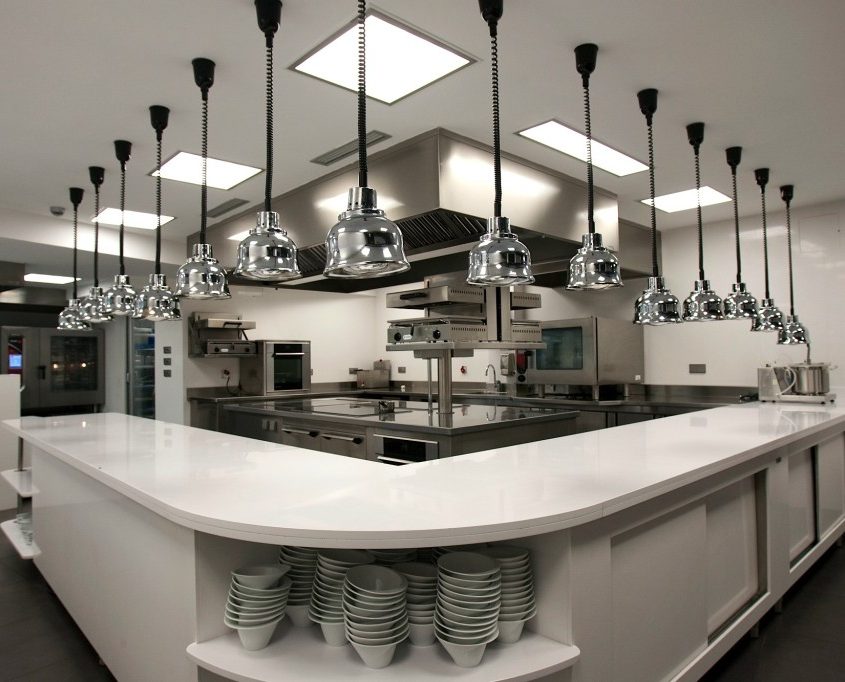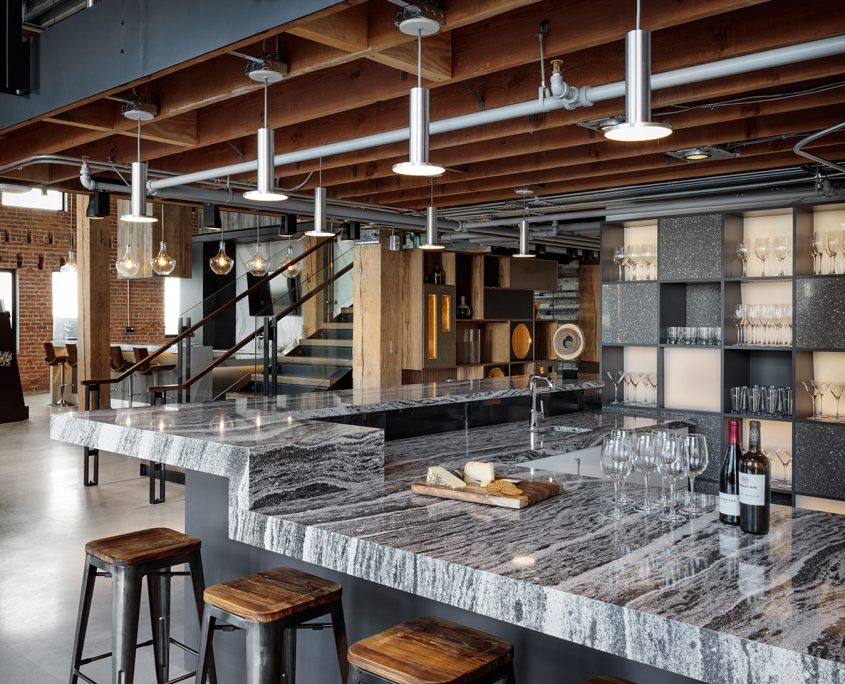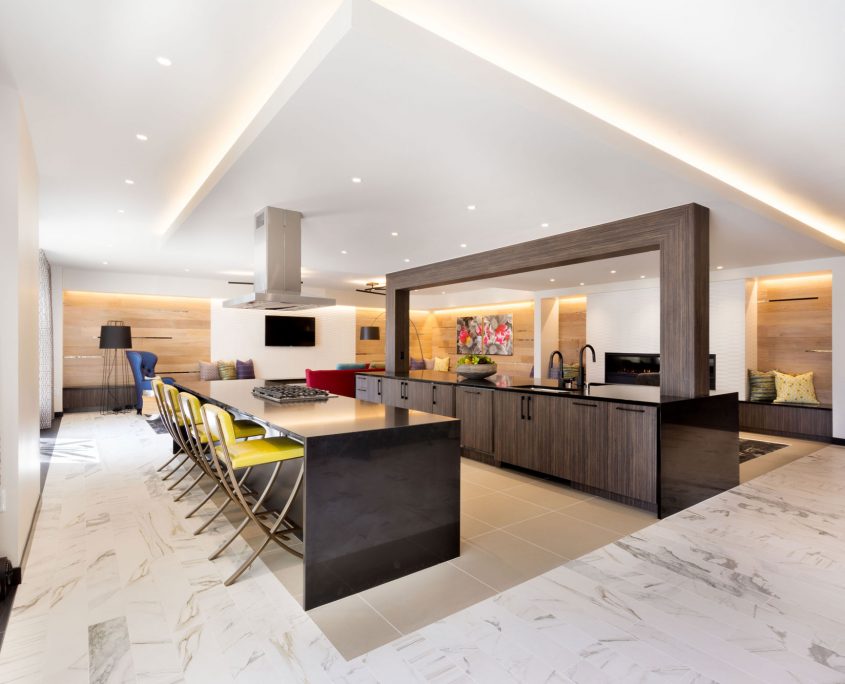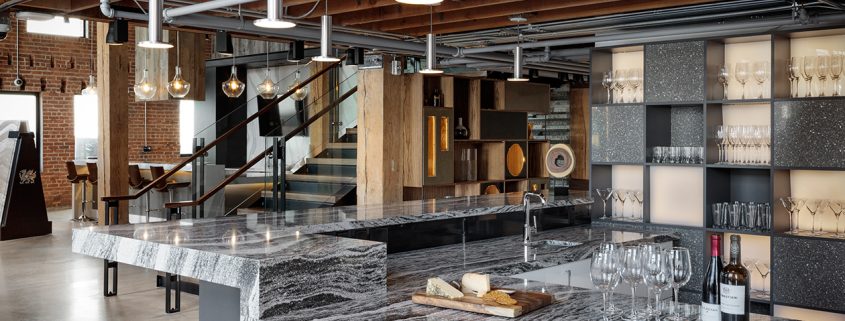Quartz Countertops – The New Granite

Photo Credit Silestoneusa.com Restaurante-Mugaritz
Quartz countertops are hard to beat! Quartz offers outstanding physical and aesthetic properties. Designers can choose from almost endless possibilities for commercial and residential countertop applications. In recent years, quartz has overtaken granite in popularity, primarily because of its attractive appearance, ease of maintenance, and durability.
Quartz is the choice of consumers
In recent years, upgraded countertop choices have become the norm for most homeowners and businesses. Common choices are marble, granite, solid plastic, exotic wood, and quartz.
Natural materials like granite and wood are good materials for countertops, but they may require regular attention to maintain their appearance. Sanding, sealing, and polishing may be required to minimize scratches, staining, and bacterial growth. In contrast, quartz countertops are easy to maintain and require no special treatment to maintain their appearance.
In spite of its relatively high cost, designers and consumers are choosing quartz over other materials. Although quartz is an engineered product, it can have a beautiful, natural appearance that designers and consumers love. Its easy maintenance and durability also come into play when choosing quartz.

Photo Credit commercial.cambriausa.com
What is quartz?
Quartz is an abundantly available, natural mineral. Quartz is the second most abundant mineral in Earth’s continental crust, behind feldspar. It is naturally hard and resilient. When combined with other raw materials as binders, quartz can be made into superior countertops, surfacing materials, and flooring.
Breton, an Italian company, owns the patent to manufacture solid surfaces from quartz and resins. Silestone, CaesarStone, and Cambria are brands that use Breton’s patent for their own quartz countertops. Cambria is mined and made entirely in the USA.
Because of its versatility, designers can achieve their desired aesthetic with quartz. It’s available in a wide variety of colors and patterns, suitable to any project. Quartz can have a glossy, matte, or textured finish. Many consumers like that quartz can mimic the warmth and elegance of desirable natural materials, such as marble and wood.
Advantages of quartz
- Anti-microbial (attractive for kitchens, medical settings, and laboratories)
- Easy to clean with soap and water
- Glossy, matte or textured finish
- Hard and durable
- Heat resistant
- Heavy – professional installation is recommended!
- High cost as compared to most other countertop materials, but similar to granite
- High flexural strength
- Man-made using 90% ground quartz & 10% resins, polymers, and pigments
- Many color options
- Many pattern options, including natural stone and wood grain
- Non-porous
- Scratch resistant
- Stain resistant
- UV-resistant

Photo Credit: CaesarStoneus.com
Quartz countertops are not suitable for outdoor applications, such as outdoor kitchens, serving counters, and potting shelves. This is because they can be damaged by direct sunlight over a long period of exposure.
Quartz is suitable for all indoor applications, including transaction counters, kitchens, coffee bars, laboratories, bathrooms, window sills, and much more.
For further reading, here are some myths about quartz countertops provided by Rumford Stone.
Quartz countertops have become the choice of designers and consumers for commercial and residential projects, overtaking granite in recent years. Its attractive appearance, ease-of-maintenance, and durability are hard to beat!



